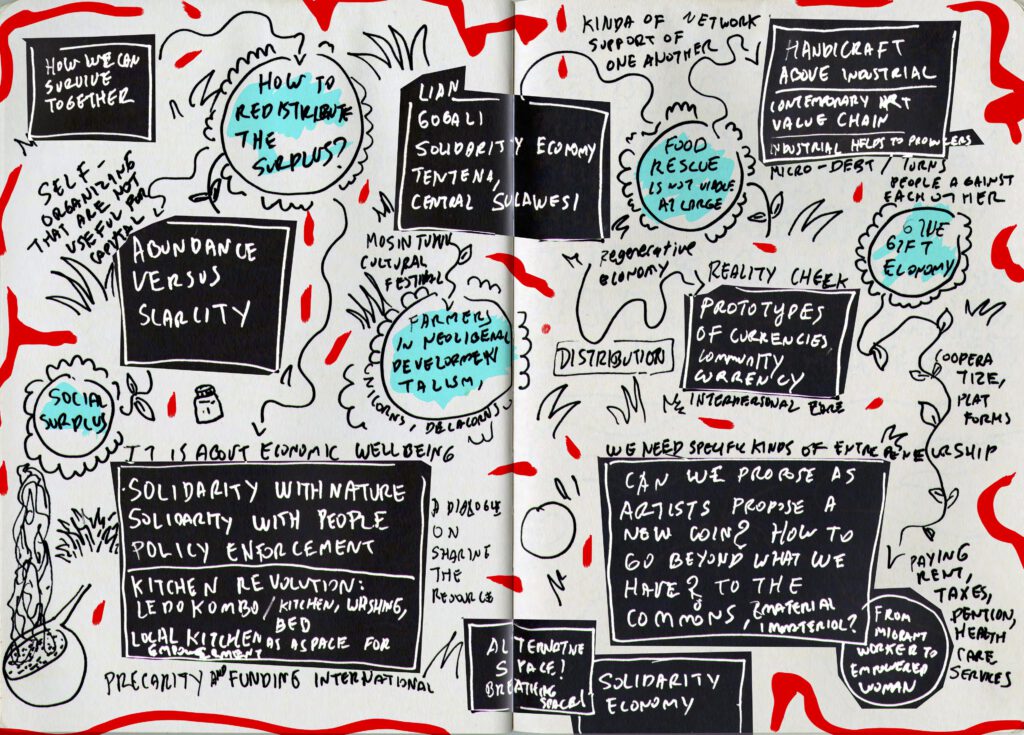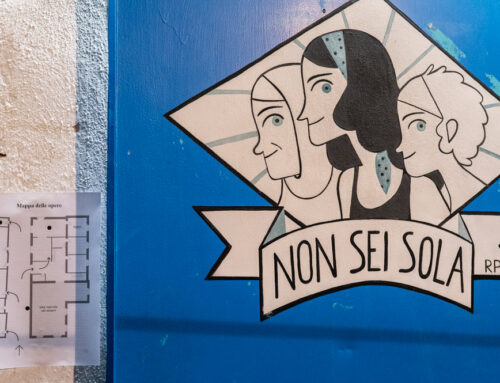Feminist Circular Economies
Melanie Budianta, Ilenia Caleo, Mi You
Harvest by Daniel Aguilar and Diana Cantarey
Hosted by Nuraini Juliastuti and Carine Zaayman
During the discussion in this panel, Ilenia Caleo articulated the ways in which the COVID-19 pandemic has opened various forms and scales of crises in Italy. She used them as critical lenses through which to read changes in the current political landscape of Italy. Caleo proposed a radical shift in how we think about ethics of care in the quest for transformative queer commons. Their key features are ontological interdependence (of humans and non-humans), the intimate as a site of the political and informality. The coming together of composite bodies produces unexpected subject formations that make meaningful connections possible. Formal institutional settings still regulate the values that guide the development of local interdependence and caring systems. Often, these institutions do not recognise the layered dimensions of care. This misrecognition prompts the need for developing innovative forms of ‘pirate care’ and ‘uncoded intimacies’, catering to multiple precarious bodies neglected by the system. There are already existing informal affective networks that further proliferate in situations of crisis that are perhaps not visible, but can be built on. Thus, the valuable question triggered by the pandemic is: how can these informal relationships and uncoded intimacies become sustainable infrastructures of care?
Mi You explored how care is practised in self-organising communities through a feminist lens. She proposed that we employ ‘abundance thinking’ to tackle the questions of care, an example of how her work rethinks entrepreneurialism from a Marxist perspective. ‘Abundance thinking’ provides a framework whereby contemporary cultural movements might assess what is considered to be of value not based on scarcity but on availability. She demonstrated how abundance could be utilised with reference to the development of prototypes for alternative currencies. Using various works in documenta fifteen as case studies, You argued that artist collectives serve as important figures in the models to support the development of systems of care.
Melani Budianta’s presentation on the solidarity economy in Central Sulawesi and Central Java provided concrete examples of social entrepreneurship by village women producing solidarities between nature and people. In contrast to the case studies presented by Caleo and You, these creative empowerment movements did not isolate themselves from the dominant marketplace. The village here becomes an important ‘breathing space’ where women can redefine their agencies and reshape their roles in supporting the community.

